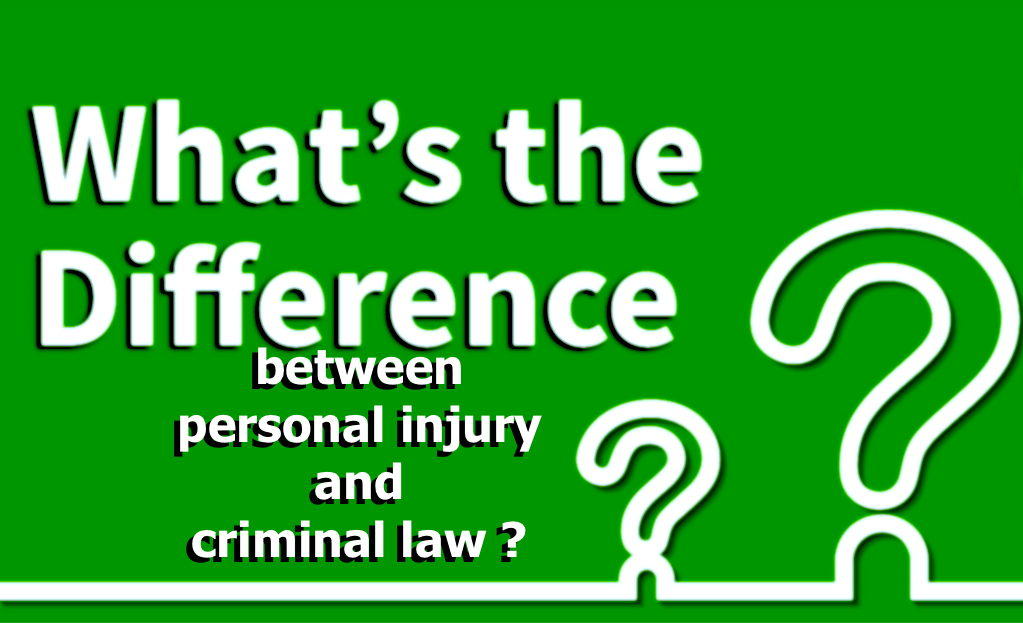Personal injury law and criminal law are two distinct areas of the legal system, each with its own processes, rules, and objectives. Here are the key differences:
- Nature of the Law:
- Personal Injury Law: This area of law deals with civil litigation. It involves disputes between individuals or organizations that arise due to some harm caused by one party to another, typically as a result of negligence. The harmed party, or plaintiff, seeks compensation for the injury or damage caused. Common types of personal injury cases include car accidents, medical malpractice, wrongful death, and slip and fall accidents.
- Criminal Law: This area of law involves crimes that are seen as offenses against the state or society as a whole, even when the immediate victim is an individual. The state or government prosecutes the accused person (the defendant) on behalf of society. Examples include murder, assault, robbery, and drug offenses.
- Legal Proceedings:
- Personal Injury Law: In a personal injury case, the injured party initiates a civil lawsuit against the person or entity they believe caused their harm. The goal is typically to recover financial compensation for damages such as medical expenses, lost wages, and pain and suffering.
- Criminal Law: In a criminal case, the government (not the victim) initiates the proceedings. The goal is to punish the defendant for their actions, often through fines, probation, imprisonment, or other penalties.
- Standard of Proof:
- Personal Injury Law: The standard of proof in civil cases like personal injury is typically “preponderance of the evidence,” meaning it’s more likely than not that one party is responsible for the harm.
- Criminal Law: The standard of proof in criminal cases is “beyond a reasonable doubt,” a much higher standard. This means the prosecution must prove that the defendant committed the crime to such a degree that there’s no reasonable doubt in the mind of a reasonable person.
- Representation:
- Personal Injury Law: A plaintiff in a personal injury case can hire an attorney to represent them, but it’s not required. Many personal injury attorneys work on a contingency fee basis, meaning they only get paid if they win the case.
- Criminal Law: Defendants in criminal cases have the right to an attorney. If they cannot afford one, the court will appoint a public defender to their case.
It’s important to remember that while personal injury law and criminal law are different, certain actions can have both criminal and civil consequences. For instance, if a drunk driver hits someone, they could be prosecuted under criminal law for DUI, and the victim could also sue them in a personal injury case for damages.
If you are seeking to file a personal injury claim, or if you are facing criminal charges of any kind, it is imperative that you retain the immediate representation of Tedford & Associates. Our Pasadena trial lawyers have been protecting the rights of our clients for more than three decades. When you choose to secure our award-winning legal representation, you can be confident that you have made the right choice. If you need a zealous advocate to fight for your right to compensation, we are here for you when you need us most. Do not try to navigate through the complexities of the legal system without our supportive assistance. We can provide you with the personalized and effective legal solutions you need. We offer appointments during standard business hours and can also accommodate morning, evening, and weekend hours. Call (626)414-3341 to schedule a consultation.




